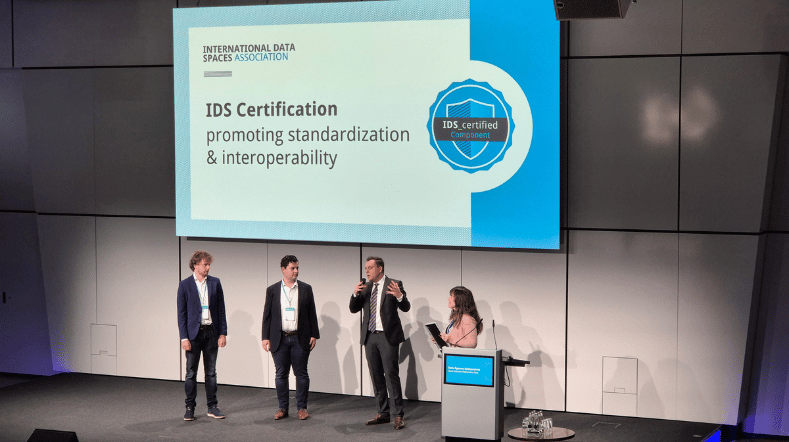TNO participates in European Data Spaces Team
Together with a pioneering team of leading European players called Team Data Spaces, TNO will contribute to setting up and coordinating data spaces in various domains, such as manufacturing, healthcare and logistics. Organisations that TNO will be collaborating with include Big Data Value Association (BDVA), Capgemini Invent, Fraunhofer ISST, Gaia-X, International Data Spaces Association (IDSA), INNOPAY, Insight, KULeuven, MyData Global, Sitra and VTT.
Data sharing accelerates innovation, for example enabling better treatment methods through the secure sharing of patient data or the digitisation of paper processes and the use of artificial intelligence. Combining different data sources creates new business opportunities and data sharing can also further increase process efficiency in supply chains. However, information sharing is a difficult subject and setting up a data-sharing network is no simple matter.
Mike de Roode (TNO): “With the Dataspaces4.EU initiative, we are accelerating the digitalisation of various sectors. This integrated approach not only takes account of technology and protocols, but also of other perspectives, such as legal, organisational and semantic interoperability.”
For this reason, work is being done in the European Union on creating data spaces. Data spaces – federated data ecosystems in which participants can easily exchange data based on shared policies and rules – create a transparent, open and fair market. Data spaces provide data sovereignty, i.e. control over one’s own data, which is a considerable advantage and a prerequisite for a European data economy.
More information about the initiative can be found on the website of Dataspaces4.EUor get in touch with Herman Pals.
Laat je verder inspireren
Data spaces certification


TNO set up first federation of dataspaces with NTT Communications Corporation (NTT Com)

5G video and data feed from ambulances improves pre-hospital triage

TNO will set up next generation data spaces with NTT Com

LANCELOT: new collaboration between IKNL and TNO

